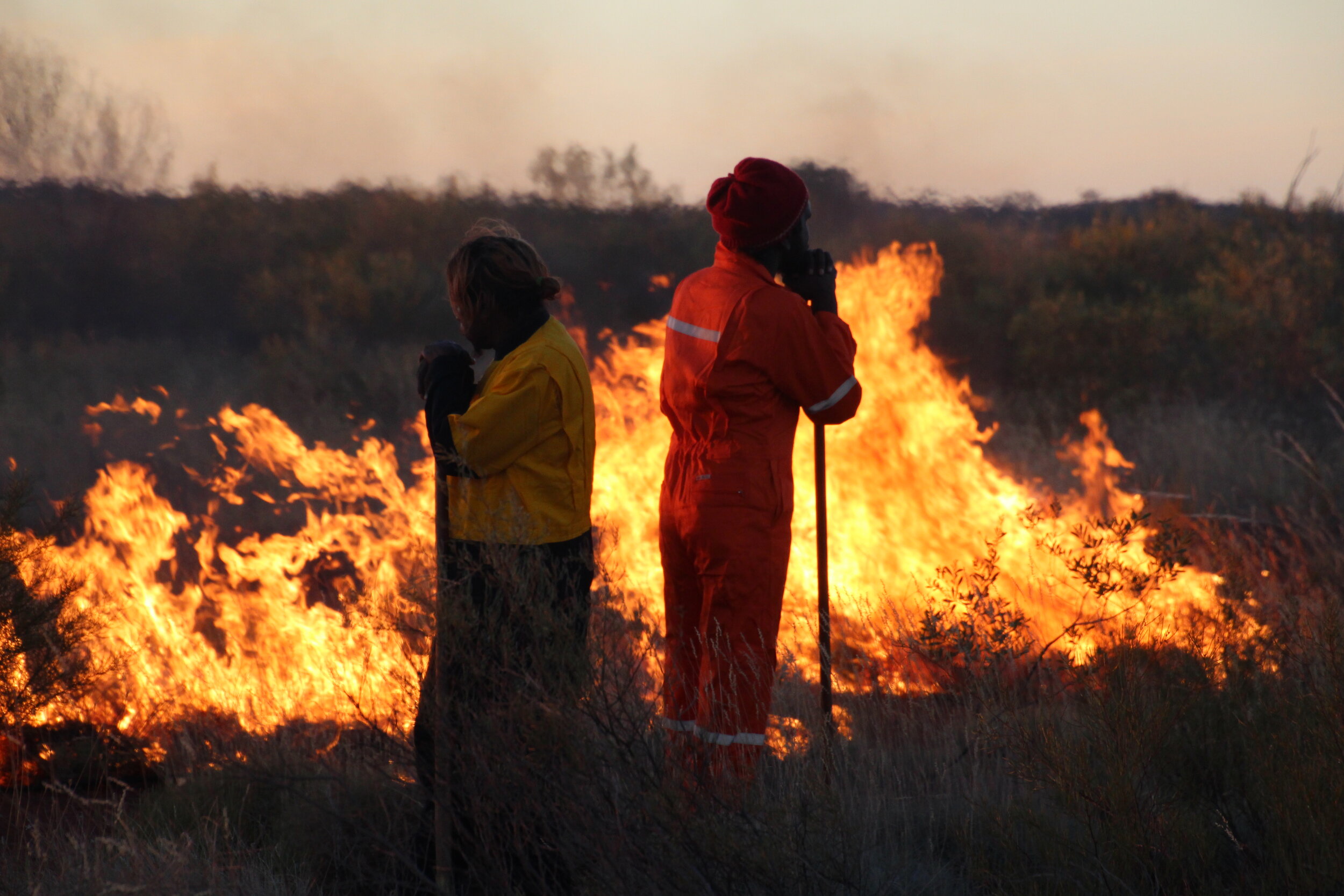KJ selected as UNESCO Green Citizen
Martu have used fire for thousands of years for hunting, promoting the growth of bush foods, communication, and ceremony. The resulting patchwork of fire scars and vegetation regrowth sustained both the biodiversity of the desert and the traditional Martu way of life.
To be healthy, Martu country needs Martu people. In the 1940s, 50s and 60s, Martu began to move off their lands and traditional burning ceased. As a result, fuel loads increased resulting in larger, hotter, and more frequent wildfires. This had a devastating effect on the desert ecosystem contributing to the extinction of numerous species.
When Martu returned to their country in the 1980s, they were confronted by the impact of decades of uncontrolled wildfires. Species that were once common no longer existed, cultural sites were damaged, and lightning regularly caused enormous megafires to burn across the landscape. These impacts caused deep distress to Martu elders and their families who articulated the need for broadscale fire management in response. As the Martu organisation engaged in land management, KJ was tasked with this response and the KJ waru program was born.
The KJ waru program aims to recreate a fire regime that reflects traditional practice. The program does so by combining Martu traditional knowledge with contemporary fire management practices. During winter, the rangers use helicopters, drip torches and fire sticks to selectively burn country. Overseen by Elders, and with the results mapped by satellite, the rangers’ small, cool burns protect cultural sites, threatened species habitat and communities.
KJ hopes to continue enabling Martu communities to look after their country through an expanded and resilient waru program. The ongoing training of rangers in contemporary fire management techniques, and the intergenerational transfer of traditional fire expertise, are critical to the program’s future success.
KJ’s fire program is the only project in Australia this year (so far) to receive such recognition from UNESCO’s Green Citizens campaign which support citizens committed to protecting our planet.
Visit UNESCO’s Green Citizens: https://www.unescogreencitizens.org/projects/waru-fire-program/.

